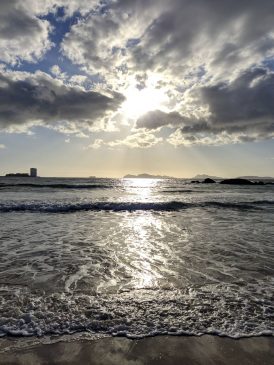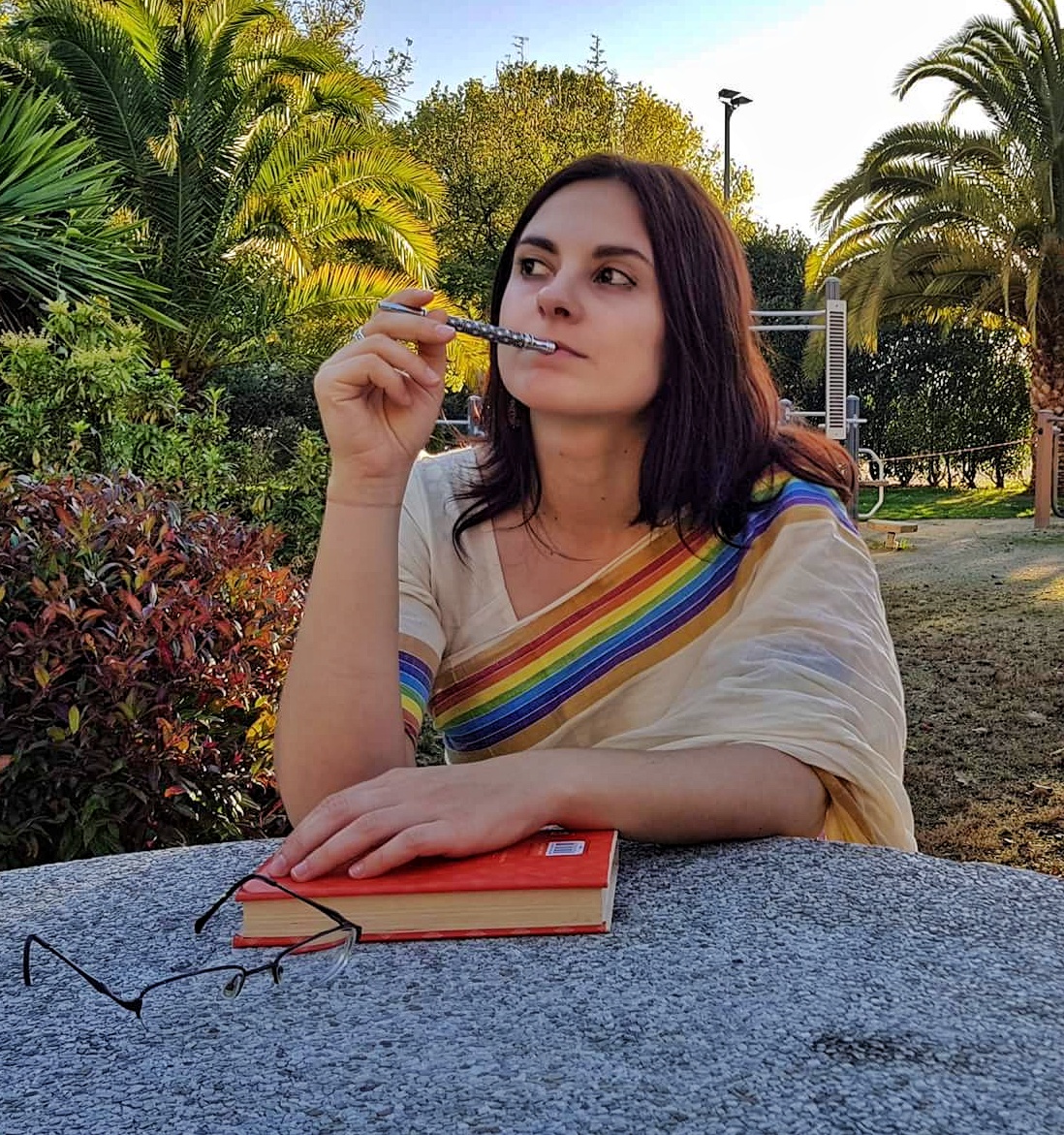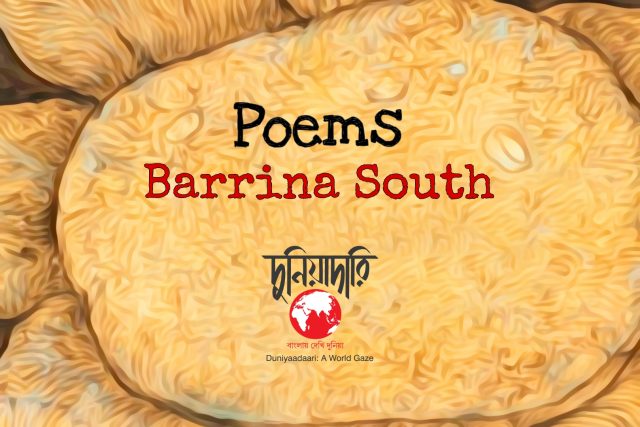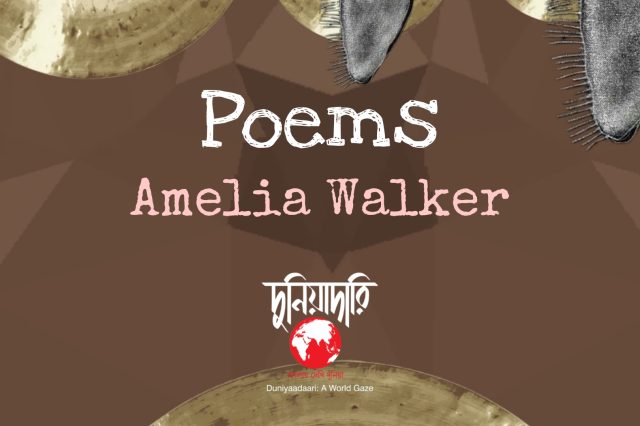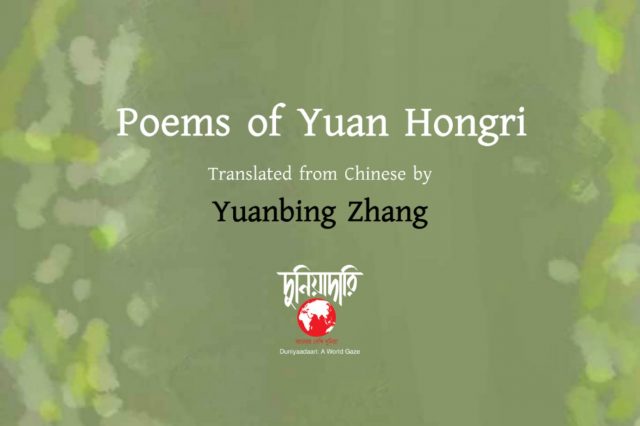Spanish poetry is well known across the world – being one of the most widely spoken languages helps, no doubt. However, within the Spanish speaking countries and people, other languages and poetries exist. They may share a common modern context more than they share a common past; still, each of these languages has a particular poetic tradition, generally shunned from literary discussions not so much for lack of merits as for lack of awareness. I am fortunate to belong to one of such poetic traditions, Galician poetry. The shadow of Spanish poetry didn’t prevent me from getting acquainted with it, thanks to the effort of writers, teachers, intellectuals and policy makers. I would like to introduce Galician poetry to Duniyadaari’s readers, since I have the privilege of being able to do so.
Galician poetry was born entangled with Portuguese poetry: in fact, both Galician and Portuguese had once been the same language, a set of mutually intelligible dialects derived from Latin that spread from the north of the Spanish peninsula to the south of Portugal. Approximately half of the what is now Portuguese territory used to belong to the Kingdom of Galicia, until it became a separate kingdom in the 12th C. This language became the preferred language for poetry in the Peninsula during the 12th and 13th centuries: thousands of lyrics from within and beyond Galicia remain today as proof. This splendorous era didn’t last long – after having lost several wars and dynastic battles, Castile took over the kingdom, and along with its political influence it took over its literary influence too. For centuries, Galician language and literature was an outcast, forgotten and even outrightly banned in the 20th C. Nevertheless, it endured.
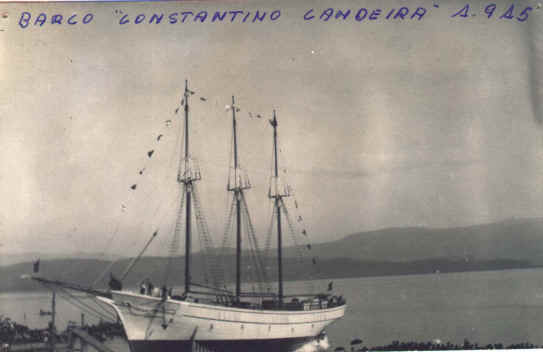
It is preposterous for me to define Galician poetry and its characteristics. Still, I am going to do so for brevity’s sake, as I do not intend to write the history of Galician poetry, so that you get a sense in very broad terms. It could be said to be characterized by its lyricism, sense of nostalgia, celebration of nature, respect for tradition (in content as well as in form), and a robust patriotism, since the very act of writing in Galician language itself was and is political. Yesteryear’s authors, through their art and bravery, command respect – for a very long time no one dared to criticize them. Thus, Galician poetry followed very trodden paths, repeated itself and imitated foreign literature, until the 1920s. That was the time of the Avantgarde, of the -isms, of Paris, and their blasts of rupture were heard even in the isolated and quiet Galician villages.
A young man with no desire for ordinary life (he tried to join the fight in World War I, the Russian Revolution, and Sandino’s rebellion against the American occupation of Nicaragua) and proud of his artistic talents, had the audacity to publish a manifest in 1922 that tore away all previous Galician poetry, criticized Spanish interference and demolished all authors who imitated either Spanish or European literature. He claimed a new poetry was due, and that he was going to write it. His name was Manuel Antonio, and his manifest was called “Beyond”.
Manuel Antonio challenged the world believing he could write completely independent poetry. He did revolutionized Galician literature like no one had done before (and probably after). However, a keen reader can notice how the nostalgic mood remains, and a keener reader would see the influence of Vicente Huidobro’s Creacionism. Nevertheless, Manuel Antonio is still the brightest star of Galician Avantgarde poetry, and deserves recognition beyond the borders of Galicia. For this purpose I have translated the two first poems of the only book published in his short lifetime – he died at the age of 29 from tuberculosis – De Catro a Catro, Follas Sen Data Dun Diario de Abordo (From Four to Four, Dateless Pages from an On Board Diary), a book he wrote between 1926 and 1927 on an accounts notebook while he was an apprentice piloting a ship in the Atlantic ocean.

Intentions
We shall fill up the sails
with dawn’s shipwrecked light
Hanging on two cardinal points
the thin swing
of the white sailboat
With their fair hands
a thousand farewells bid the stars
We shall invent frustrated discoveries
windward to the horizon
to speed up the withdrawn hearts
of our disillusioned sailboats
We shall pull the bowline knot
of a numberless meridian
In the nameless island
of every sea lane
we shall study the regrets of the city
She nocturnal will deflower
like a brothel daisy
the wind rose of our hearts
We shall string together goodbyes of sea foam
for every lost beach
we shall collect blank notebooks
from the wind’s roaming novel
we shall fish in the atlas’ net
Simbad’s sailing wake
And we shall lift the canvass
over the rebel body of the storm
to fasten the ropes of an illusion.
The old frigate
Your eyes are distant
bedecked with the youthful faces
the old sailors exchanged
for antipodean climates
On your wheel
the pull of firm arms
twisted the prolonged
horizons of the sea
The wind
tightening the knots
blew from the canvasses
the autumns of adolescence
You used to buy necklaces
shaped as meridians
in the sky’s bazars
You used to join scattered lighthouses
with the mooring strings of the wake
You blossomed in the Sea
bitter springs
foam-washed and fish-scaled
Even though the wind lulls the waters
on your sails shakes
a gust of transmigrations
In that countless heart of yours
the tides of my own heart
flow in and out too.
